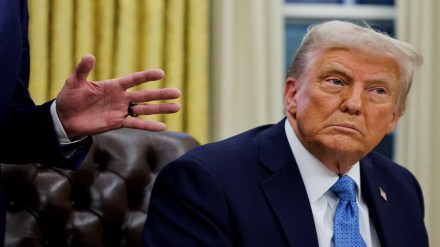A 10% import tariff imposed by the US on China is being viewed as positive for made-in-India electronic products such as smartphones, laptops and tablets, analysts said. The move is expected to benefit contract manufacturers like Dixon Technologies, Syrma SGS, Optiemus, as well as iPhones contract manufacturers such as Foxconn.
This is because a higher import tariff on Chinese goods would pave the way for Indian companies to export these products that do not attract tariffs. An increase in the demand for exports from India could thus boost business for the contract manufacturers.
With the IT hardware production-linked incentive (PLI) and the smartphone PLI schemes, many companies have started leveraging China Plus One opportunity to make products in India and export from the country.India’s total electronics production for FY24 stood at $115 billion, of which around $52 billion was mobile phones, according to India Cellular and Electronics Association (ICEA) estimates.
The output may reach around $140 billion in FY25.Notably, the government has a target to reach electronics production of $500 billion by 2030. For the same, domestic production of electronics components and their exports will be critical to serve other markets as well.According to ICEA, electronics production in India will need to grow at an annual growth rate of 20-22% to reach the 2030 goal.
“With on-going supply chain diversification and higher tariffs being imposed on Chinese imports by the US, India has a strong opportunity to increase its electronics exports to the US. Global businesses across segments are actively considering and executing China Plus one strategy,” said Satendra Singh, CEO of Syrma SGS.
According to Singh, Indian companies are expanding production capacities, improving technological expertise and enhancing supply chain efficiencies, making exports more competitive in international markets.Analysts said many companies such as OnePlus may look at exporting their smartphones from the country and get benefits.Tarun Pathak, research director at Counterpoint India, said, “While the first set of tariffs did not include India, this can create an opportunity for the country to become an alternate supplier. In the electronics segment, we have a mature assembly process and enough capacity.”According to Pathak, it’s a good opportunity for players like Dixon and Apple suppliers.
US President Donald Trump has imposed a levy of 25% on Canadian and Mexican imports, along with an additional 10% tax on Chinese goods, which would come into force on Tuesday. The same has been done owing to the Washington’s concerns about illegal immigration and drug trafficking from those countries.Officials said India can benefit from the move and the same will also boost value addition in the country.Faisal Kawoosa, chief analyst at Techarc, said, “Many electronics and smartphone companies who were not producing and exporting from India may look at the opportunity.”
Experts believe that strong electronics manufacturing industry driven by high local and global demand will encourage component manufacturing in India, fueling further value addition in the country.Notably, India is soon expected to come up with a component incentive scheme.Singh, however, said the industry must focus on building world-class manufacturing capabilities and infrastructure to compete with the rest of the world.Further, simplification of regulatory processes and favorable bilateral trade agreements will help Indian companies access global markets, he added.
